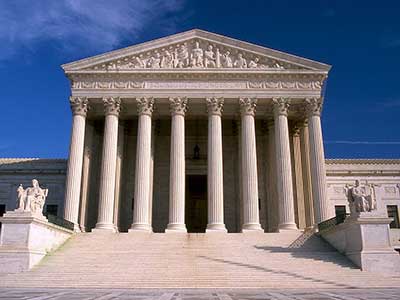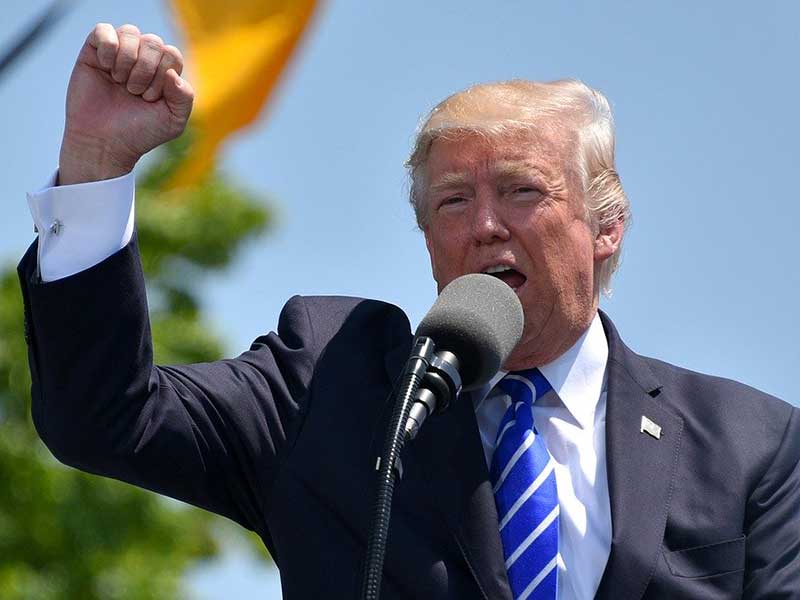Like many I suppose (or, is it hope?), I would like to see less hyperpartisanship or political polarization in the country. I would like to be able to discuss politics with others who do not think like me without the conversation disintegrating into a free-for-all where neither of us are even willing to agree on facts. I would like governing to be boringly bland, giving cable news and social media purveyors absolutely nothing about which to kvetch.
That said, much like I often remarked about the Obama administration, I will miss the Trump administration when its term is finished—whenever that may be. Why will I miss the Trump administration? Well, for the sole reason, again much like the Obama administration (and let us be fair, much more so in the last three and ¾ years than the preceding eight years), the public law scholar in me loves how the administration’s shenanigans have provided me so much material to revisit, dust off and display anew.
The most recent example would be the Trump administration’s various and sundry stunts during the Republican National Convention which occurred last month. During the convention, largely staged in Washington D.C. and the White House, we saw political speeches related to President Trump’s reelection bid, a naturalization ceremony for new U.S. citizens conducted by Department of Homeland Security Secretary Chad Wolf and a speech by Secretary of State Mike Pompeo while he was on a government trip in Israel. The Democrats in the House of Representatives have asked the Office of Special Counsel, which, as you may imagine, has been doing high volume work during the current administration (smirk), to investigate whether these convention actions violated the Hatch Act.
The Hatch Act was passed in 1939 in response to creation of the modern administrative state during President Roosevelt’s New Deal program. The concern of Congress, after basically giving Roosevelt all that he asked for with numerous new agencies and thousands of new executive branch staffers, was the rapid and significant expansion of the federal bureaucracy during the 1930s would provide for the Office of President, no matter who occupied the position, a political machine which the president would be able to use for their partisan, political purposes. As political machines were often viewed as the scourge of U.S. politics throughout the 19th century, creating a very politically responsive albeit often ineffective governing regime, even the Democrats in Congress – the same party as President Roosevelt and overwhelmingly the majority in both Houses – felt as though some checks needed to be placed on federal bureaucrats.

The Hatch Act had two major thrusts. One, federal bureaucrats were prohibited from engaging in partisan political activity while on the job, and certain political activities off the job (like doing partisan campaign work). Two, federal bureaucrats were protected from being forced by political superiors to do partisan work as a condition of keeping their federal jobs. Basically, the law was designed to create the politically neutral, competent government workforce about which Woodrow Wilson wrote about in the late 1800s and the Progressives advocated for in the first three decades of the 1900s. But, there was a constitutional problem with the Hatch Act, as it placed considerable limits on federal government workers’ political speech rights, as protected by the free speech clause of the First Amendment. In attempting to promote the perception of a federal government civil service free of politics, the law in part had to restrict the speech rights of those employees.
This dilemma highlights a contradiction somewhat unique to public administration in the U.S. While meaningful governing authority is often delegated to these bureaucrats, who are not electorally accountable, they are often treated as second class citizens constitutionally in the desire to at least give the appearance these civil servants will be neutral in exercising the aforementioned government authority. The Hatch Act’s limitations on political speech are just one of a number of rights deprivations civil servants endure (see also Fourth Amendment searches of government work stations, privacy limitations, etc.).
The Hatch Act has been challenged before the U.S. Supreme Court (SCOTUS) twice, and both times, the SCOTUS upheld its constitutionality. The first case was United Public Workers v. Mitchell (1947), a case concerning a claim by Poole that his off-hours political speech was protected by the First Amendment. In a 4–3 decision, the SCOTUS held no constitutional right is absolute (as my constitutional law students hear ad nausea; grin), and as such, the court had to balance the rights of Poole versus the interests of the federal government in demonstrating to the public that its workforce is free of even the appearance of partisan influence which could affect its work and interactions with the public. As such, according to Justice Reed’s majority opinion, the Hatch Act was a legitimate intrusion upon the rights of government workers. Justice Black writing in dissent, employed his standard strict constructionist, absolutist take on the First Amendment. To wit, the amendment begins with the language, “Congress shall make no law,” and thus, Congress could not pass the Hatch Act.
Some 26 years later, in the case of Civil Service Commission v. National Association of Letter Carriers, the SCOTUS was once again asked to review the constitutionality of the Hatch Act. In particular, the letter carriers claimed the law was unconstitutional, but even it is constitutionally permissible, the regulations the commission used to implement the law were unconstitutionally vague. In a 6–3 vote, the SCOTUS ruled against the letter carriers. Justice White writing for the majority concluded that throughout the country’s history there has been a long-established practice of limiting the political speech activities of government employees, and even if no such history existed, the majority in this case reaffirmed the Mitchell case’s finding—upholding public confidence in a neutral bureaucracy was a greater value than the cost of limiting civil servants’ speech rights.
"The difficulty for the Special Counsel’s office is the activities forwarded by the Democrats in the House of Representatives for review is that none of the officials in question (Trump, Wolf, Pompeo) are career civil servants who are typically covered by the law."
For those of you who are interested in how the Hatch Act applies to what the Trump administration did during the Republican National Convention, the difficulty for the Special Counsel’s office is the activities forwarded by the Democrats in the House of Representatives for review is that none of the officials in question (Trump, Wolf, Pompeo) are career civil servants who are typically covered by the law. Recall, the purpose of the law was to protect/limit unelected, career civil servants. Trump was elected, and Wolf and Pompeo are political appointees. Accordingly, while it violated all kinds of historical norms/preferences that suggest national party activity should not occur at the White House, that naturalization ceremonies for new citizens should not be used as party propaganda, or a Secretary of State on national government business overseas should not give a party speech, I am extremely skeptical the Hatch Act applies to the behaviors in question.
We may not much like how the Trump administration violated these historical norms, but they do not appear to me to be prohibited by the Hatch Act. On the other hand, the Trump administration once again afforded me the opportunity to discuss one of those chestnuts of administrative law–the Hatch Act, warmly share the controlling precedents issued by the SCOTUS in upholding said law and remind readers anew of the often delicate, difficult balancing act when we aspire to individual liberties and good government.
This article was previously published as “I Will Miss When You’re Gone: Or, a Revisiting of the Hatch Act,” a Musings by Aughie column, Vol. 241, on VCU Political Science’s Facebook page.
About the Author

John (“Aughie”) Aughenbaugh, Ph.D., is assistant professor in the VCU Department of Political Science. He regularly teaches courses on constitutional law, administrative law, public policy and American politics (among others).
Prior to coming to VCU, Aughenbaugh was an administrator at Virginia Tech, including stints as associate director of Virginia Tech’s Richmond Center and as an economic and community development specialist in the Office of Economic Development. Before these administrative posts, he taught various public law courses in Virginia Tech’s political science department, where he won a number of awards for his teaching.
Aughenbaugh has presented at a number of academic conferences, is frequently asked to lecture about the courts and government administration, has had a number of public law entries published in various academic encyclopedias and is currently working on journal manuscripts related to the federal courts’ impact on the work of bureaucrats, public administration service learning, as well as state research and development tax credit programs. Additionally, Aughenbaugh served on the Governor’s Council on Human Resources from 2007 to 2009. Lastly, Aughenbaugh has served in various administrative capacities at VCU, including being coordinator of the Graduate Homeland Security and Emergency Preparedness (HSEP) program, chairperson of the entire HSEP program from October 2010 through May 2012, and associate chairperson of the Department of Political Science in 2015.
